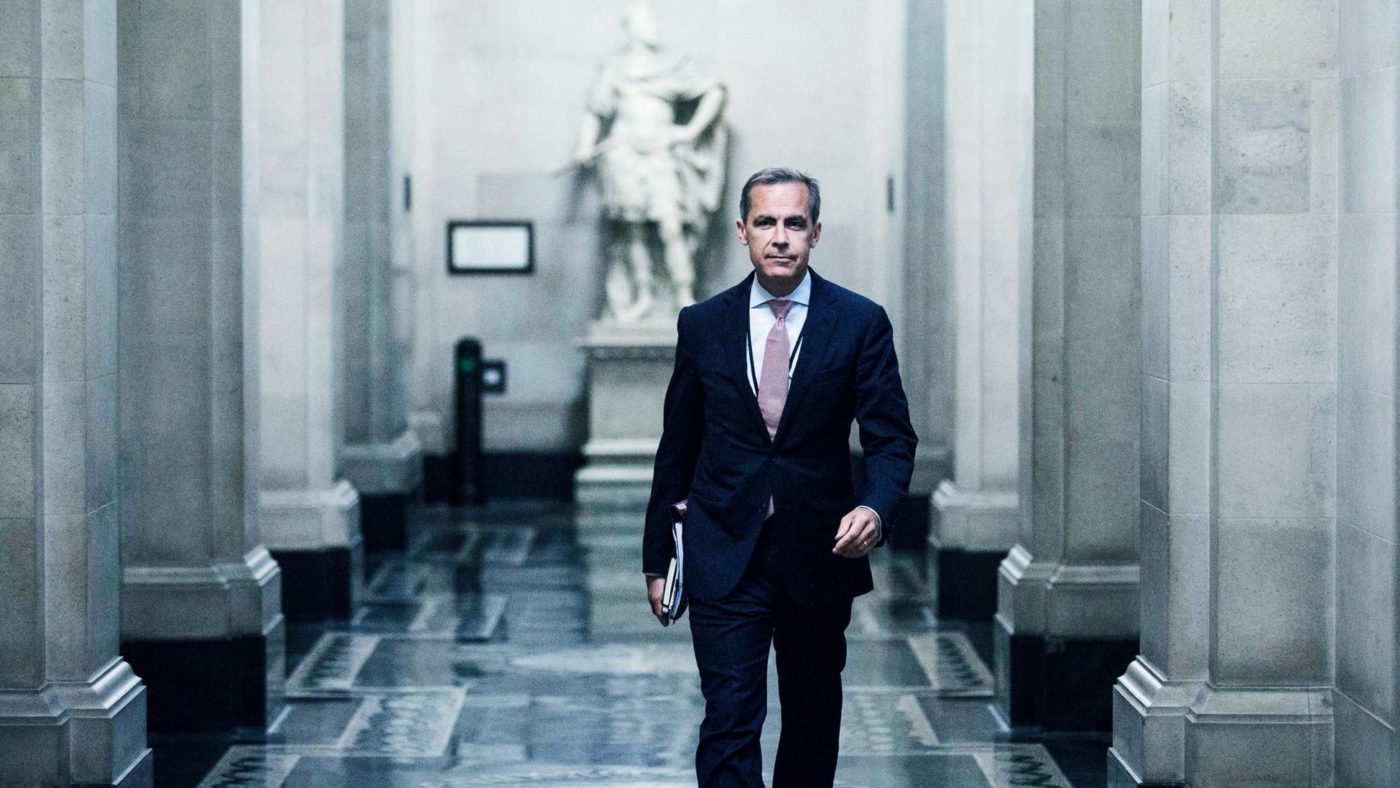I am not one for overly criticising Mark Carney. Along with George Osborne, he deserves credit for navigating us out of the financial crisis and restoring order and discipline to the banking sector. On the day after the referendum in 2016, when the Conservative party decided to publicly disembowel itself, it was Carney who stepped forward to provide calm.
Yet, if he joins the chorus of other members of the Monetary Policy Committee who have hinted they could vote to cut interest rates, he would leave an unnecessarily sour legacy. The latest was Gertjan Vlieghe, who said earlier this week that conversations on the MPC had shifted towards cutting rates from their current 0.75%. “If you knew nothing about Brexit . . . and just looked at the UK data, you could reasonably make the case we should have cut rates already,” he said.
The pound has tumbled and is now hovering around $1.30, roughly where it was before the election. There are eight members of the committee, and if Mr Carney votes for a cut at his final meeting on 30 January, it would likely tip the balance in favour.
It would be far better if Mr Carney persuaded his colleagues to keep quiet and do nothing, and instead concentrate on farewell dinners and drinks parties ahead of his 15 March departure date.
There are three reasons why cutting interest rates – which are effectively at all-time lows anyway – would be a very bad thing to do.
The first is something called the reversal point. An influential paper by Princeton academics Markus K. Brunnermeier and Yann Koby suggests that, at some point, interest rates become too low, and policy too easy, with the consequence they have the opposite effect intended, causing bank lending and economic activity to flatline or contract.
Ask any saver with cash and they will tell you that deposits are piling up uselessly in the banking sector, as banks struggle to find profitable lending opportunities. Savers, many of whom are retirees fearing trouble, respond by leaving their money on deposit rather than by using it for other, more speculative investments. Real interest rates, taking account of inflation, are now negative.
Banks themselves, which depend on the margin between borrowing and lending rates to make money, also struggle to remain profitable and resort to sneaky charges. Note how many of them are withdrawing cheap overdraft facilities and some in the euro zone, where stagnation really has set in, are actually charging to hold deposits.
Not being a technical economist myself, I cannot say definitively what the reversal rate of interest is in here, but common sense suggests we are already below it. The additional economic uncertainty caused by the election, means consumer credit actually shrank in November, for the first time in six years.
The second reason the Bank should not cut interest rates is that it would be to misread the data. There is no point arguing that the economy had a poor 2019 and effectively ground to a halt during the election. Domestic political uncertainty was one thing, but in addition we had the American trade war with China to contend with. Since then, the situation has improved and early, forward-looking surveys of business sentiment, such as NatWest’s regional survey, have shown an improvement in confidence.
The third reason Mr Carney should ensure the Bank does nothing is more profound. It would confirm what many people fear, that the Bank is a haven for just the sort of insulated, technocratic Remainer types who continue to misread not just the economy, but society in general, and consequently go around saying everything is doom and gloom with the UK, when it is not. We have a new centre-right Government with a majority which is taking a moderate and thoughtful approach to most subjects. It has also already indicated a clear change of economic policy.
Boris Johnson and Chancellor Sajid Javid have said that they are going to embark on a period of fiscal activism – borrowing to invest and to cut some taxes – which is going to be very different to the austerity policies of both Philip Hammond and George Osborne. They are promising to borrow at least £20 billion extra a year, while keeping the current budget in balance. That means the deficit is going to rise, from below 2% to as high as 3-4%. The likelihood is this will push up both growth and inflation.
This fiscal activism may be anathema to some people, including many on the right. But I would suggest that with growth unimpressive, productivity flatlining, self-evident shortfalls in both public and private investment and real market interest rates probably at their lowest for 800 years, it is a reasonable response.
If ever there was a moment or the Bank of England to keep quiet and do nothing, it is now.
Click here to subscribe to our daily briefing – the best pieces from CapX and across the web.
CapX depends on the generosity of its readers. If you value what we do, please consider making a donation.


